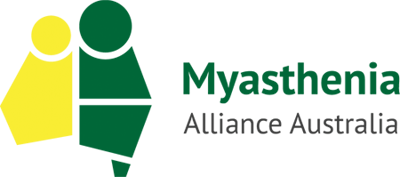You may be hearing more about HTA and PBAC from the MAA and among MG patient chats and meetings. You may have made your submission about new treatments for MG earlier this year, or you may generally follow updates about new treatments and how they come to be available to us in Australia. But what or who exactly is HTA and PBAC?
Let’s take a step back and look at these important organisations and processes.
HTA stands for Health Technology Assessment. This is the multidisciplinary analysis and evaluation that studies the medical, economic, social and ethical implications of the development, diffusion and use of health service delivery and associated technologies, in a systematic, transparent, unbiased and robust manner.
PBAC is the Pharmaceutical Benefits Advisory Committee. They recommend new medicines for listing on the PBS (Pharmaceutical Benefits Scheme) based on medical conditions, clinical effectiveness, safety and cost-effectiveness.
It is also worth noting that the TGA is the Therapeutic Goods Administration, which is the regulatory agency that decides if a treatment is safe and fit for purpose. The TGA often approves a treatment or therapy before it moves to PBAC (but not always).
Now that we’ve covered the acronyms, let’s take a look at why this matters for us as patients. Quite simply, it is because the patient voice matters. Our involvement in these assessment processes “ensures that the advice provided is informed by the needs of the people living with health conditions” (Conversations for Change Report, 2023, p.1). When making a submission to PBAC, you can tell your story and talk about what it is like to live with MG, your unmet needs and your quality of life, the pros and cons of current treatments, the desired benefits of new treatments and how they might make a difference in our lives.
As an organisation representing MG patients across Australia, the MAA advocates for us to ensure that a range of beneficial treatments are available, accessible, and affordable. This aligns with Priority 2.4 of the National Strategic Action Plan for Rare Diseases: Enable all Australians to have equitable access to the best available health technology.
The Patient Voice Initiative (PVI) provides some really useful tips for making submissions to PBAC:
- Do share what you know and tell your story (don’t cut and paste)
- Be specific (don’t give general information)
- Do explain the difficulties and impact of having a rare disease (don’t give number of cases/incidence)
- Do explain what the side effects are/were and what that meant for daily life (don’t say ‘difficulty managing side effects’)
- Do explain the reality of living with the condition (don’t explain the condition)
- Do explain the reality of having (or not having) treatment (don’t explain the treatment)
- Do submit what happens in the real world (don’t submit clinical data)
- Do consider collecting and contributing to studies that answer the questions you think are most important (don’t submit published literature and statistics)
Take a look at this clear diagram of how medicines/treatments are listed on the PBS: https://www.patientvoiceinitiative.org/patient-experience-and-participation/pharmaceutical-benefits-scheme/#howpbsworks
You can learn more about HTA and PBAC though PVI’s Patient Voice Hub here: https://www.patientvoicehub.org/training/index.cfm?event=page.login
You can subscribe to the government’s HTA Engage communications here: https://www.health.gov.au/using-our-websites/subscriptions/subscribe-to-hta-engage-communications

It is an exciting time for MG in terms of research and new treatments that offer us choices to better meet our preferences – for example, if you prefer taking tablets to an IV infusion in hospital, or if you prefer a lower cost treatment.
We encourage you to keep participating in research and submitting your feedback. This is how we can make the most of the opportunities to use our voice and share our lived experience. It is often said among stakeholders now that patients are the experts in being patients and knowing how it feels to live with MG. This is why we are part of these important decision-making processes.
If you have any questions or concerns, please reach out to the MAA by calling 1800 802 568 or emailing info@myasthenia.au. You can also directly contact the state associations, same contact details for MGAQ info@mgaq.org.au and for MGNSW.






 Recently the Pharmaceutical Benefits Advisory Committee (PBAC) announced the outcome of their July Meeting. The MG community were keenly waiting to hear the PBAC Outcomes as two new medications, Raviluzimab and Zilucoplan, had been reviewed. Regrettably both medications received a ”Not Recommended” verdict. The PBAC did recognise the high clinical need for effective therapies for gMG.
Recently the Pharmaceutical Benefits Advisory Committee (PBAC) announced the outcome of their July Meeting. The MG community were keenly waiting to hear the PBAC Outcomes as two new medications, Raviluzimab and Zilucoplan, had been reviewed. Regrettably both medications received a ”Not Recommended” verdict. The PBAC did recognise the high clinical need for effective therapies for gMG.









